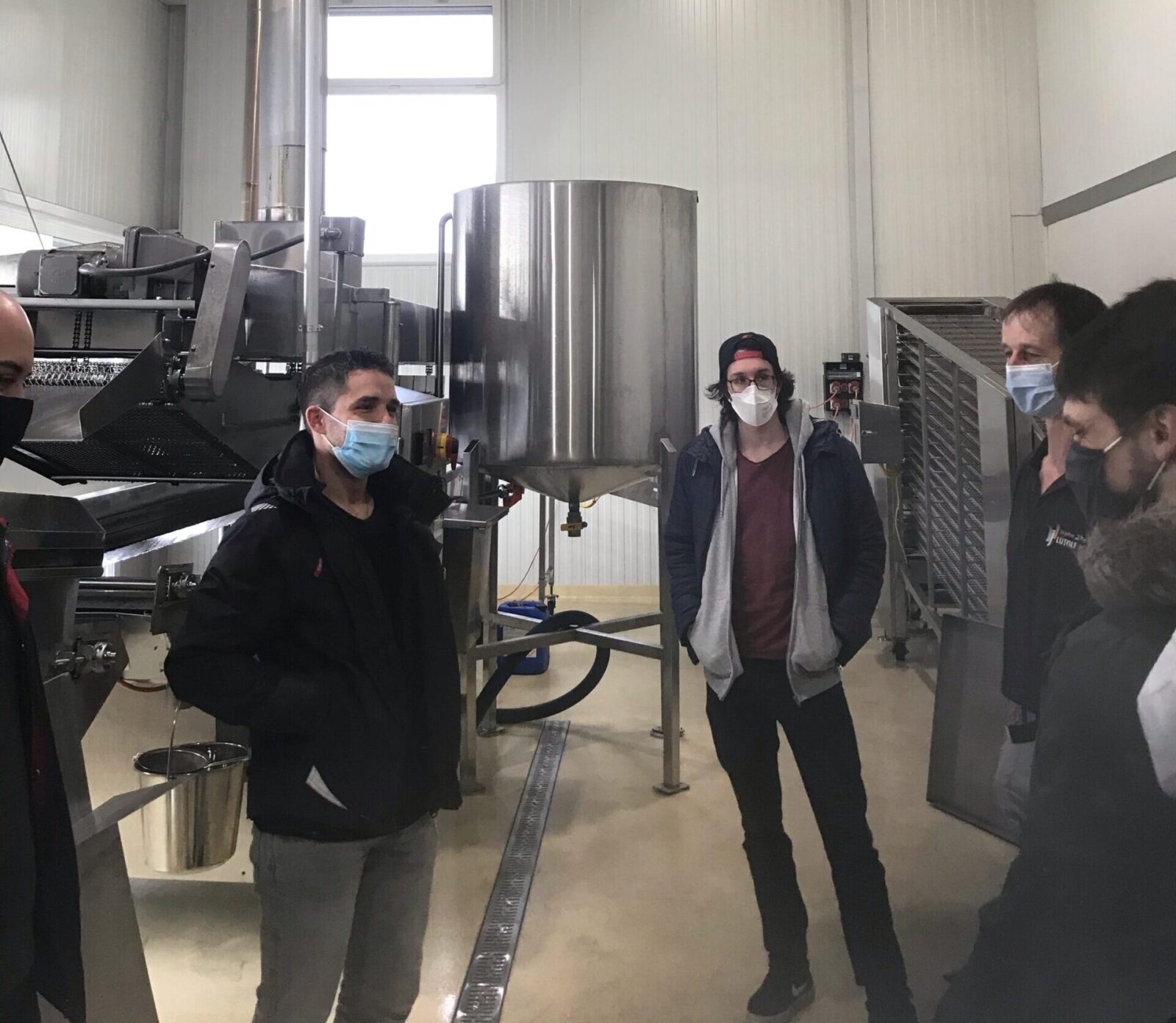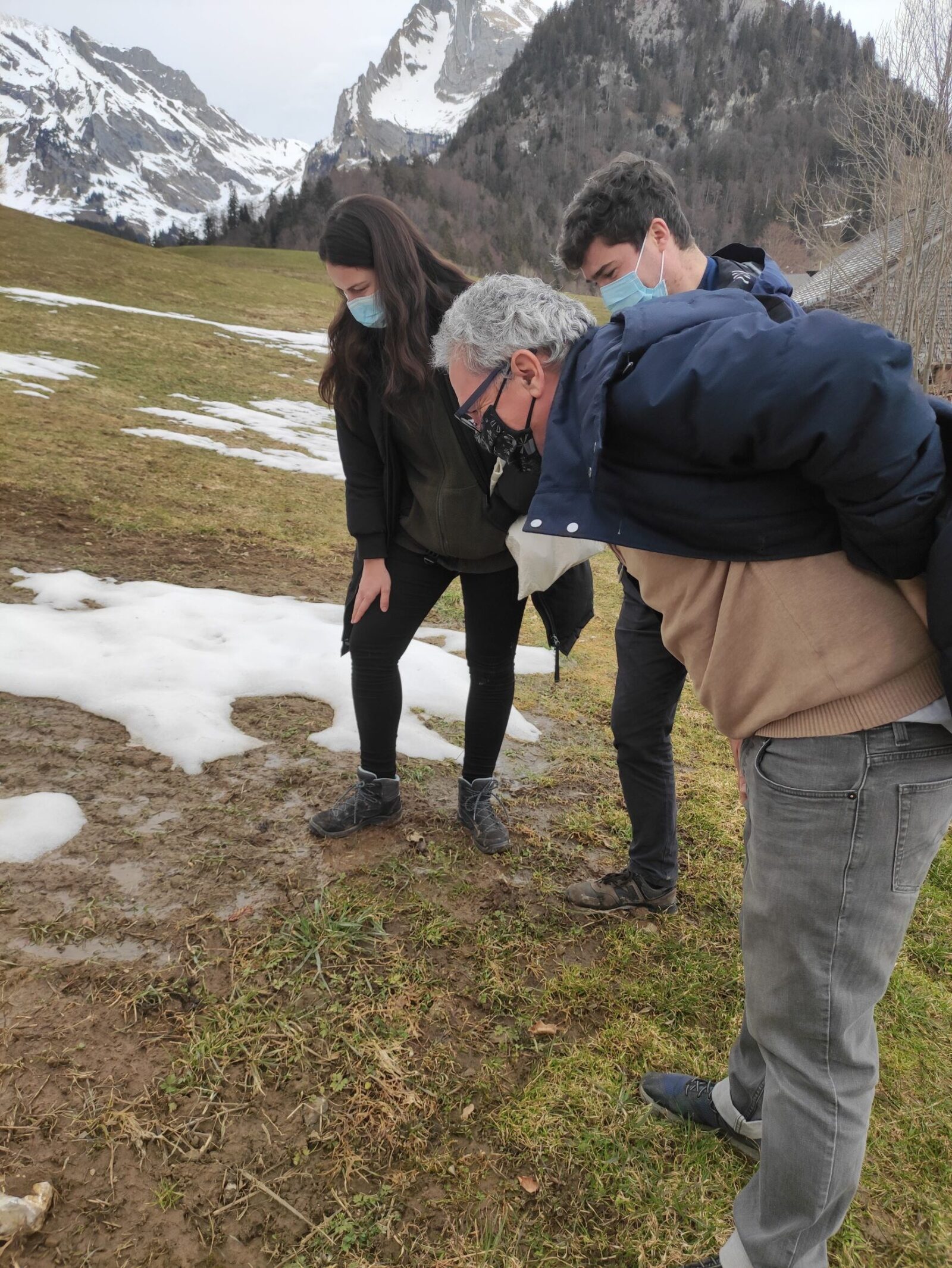The interdisciplinary project work
A 25-year model of success
In the interdisciplinary project work (iPA), problems are not only discussed theoretically, but tackled in a very practical way. Since 1996, small teams of Master’s students in agricultural and food sciences have been working on real-life issues and putting their skills to the test. The aim is not only to use the diverse specialist knowledge acquired during the study programme, but also to promote networked thinking.
Every second year, a different region or agricultural school in Switzerland is the host, for example the Salez Agricultural Centre in 2021. The projects focus on topics along the entire food value chain and range from artichoke cultivation to quality assurance in farm dairies and cheese dairies to the creation of a Ribelmais maize drink.
Carry out a project from A to Z
The practical work usually starts with a visit of the teams to their project partners. After all, it should be precisely specified how many degrees below zero the artichokes have to withstand, which dairy products exactly are to be produced or for which target group the maize drink is intended.
Then it’s on to writing the project application, formulating rough and detailed concepts, conducting research, contacting experts, tinkering in the lab or in the kitchen and calculating business models. The teams receive input from coaches from the two disciplines on the one hand, and from lectures on topics such as teamwork and project management on the other.
What the students have worked on during a semester is finally completed in the external project days. They take place in local accommodation in the host region and allow the students to deal intensively with the topic once again. During these four days, the teams prepare their project report and present their solution to the project partners, coaches and students on the last day. The implementation of the proposals is the responsibility of the project partners. And this has certainly been done, for example in 2007, when a farmer from that year’s host canton successfully converted his farm from dairy cow to dairy sheep farming on the advice of the students.

Being innovative together
Students ought to have the opportunity to be creative in finding innovative solutions to real-world problems and acquire skills that are not otherwise part of the curriculum. A format was therefore chosen for the iPA that differs in many respects from the classic courses at ETH.
Lectures make up only a small part of the course and take place irregularly. They give mainly generic inputs that can be directly applied in the project. Rather, the focus from the very beginning is on the active application of specialised knowledge and the independent filling of knowledge gaps. In addition, much emphasis is placed on exchange and cooperation between the prospective specialists of the different disciplines. After all, the course has “interdisciplinarity” in its name.
However, all those involved not only bring different expertise, but also different opinions to the table. And this is exactly where another goal of the iPA lies: the students ought to learn the fine art of professional communication with team members, coaches and project partners.

A continuous optimisation process
The first iPA took place in 1996 in Grangeneuve in the canton of Fribourg, as a one-week course called “interdisciplinary work week”. Interdisciplinarity referred to the five fields of study that had been newly created in the course of the study reform (agricultural plant sciences, farm animal sciences, agricultural economics, agroecology and agricultural biotechnology). All students should once again work together on a project and combine the specialist knowledge they have acquired during their studies. Topics at that time were the analysis of fodder and the creation of a crop rotation.
In 2008, food sciences also participated in the course for the first time, although at that time, the two degree courses were still dealing with different topics. It is only since 2010 that projects along the entire food value chain have been worked on in mixed teams. Gradually, additional interdisciplinary skills, such as teamwork, project management and presentation techniques, were defined as learning objectives and the course was extended to a semester course. In 2014, it was therefore renamed “interdisciplinary project work”.
The course will continue to be optimised to meet contemporary requirements. For example, since 2020, there has been an even stronger focus on transdisciplinarity.